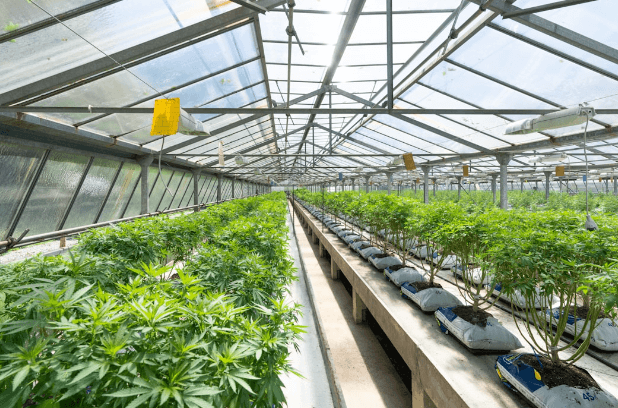Cannabis Vitality: Elevate Your Health and Lifestyle with Marijuana

The endocannabinoid system (ECS) is a complex network of receptors, enzymes, and endocannabinoids that are found throughout the human body. This system plays a crucial role in regulating a wide range of physiological processes, including mood, memory, appetite, pain sensation, and immune function. The ECS is comprised of two main types of receptors, known as CB1 and CB2 receptors, which are found in various tissues and organs. Endocannabinoids, which are lipid-based neurotransmitters, bind to these receptors and help to regulate the balance of different bodily functions.
The ECS is involved in maintaining homeostasis, or internal balance, within the body. When the body experiences stress, injury, or illness, the ECS works to restore equilibrium by modulating the release of neurotransmitters and regulating inflammation. This system also plays a role in neuroplasticity, or the brain’s ability to adapt and change over time. Research has shown that the ECS is involved in a wide range of physiological processes, and its dysregulation has been linked to various health conditions, including chronic pain, inflammation, anxiety, and depression. Understanding the ECS and its role in maintaining overall health and well-being is crucial for exploring the potential health benefits of cannabis.
Exploring the Health Benefits of Cannabis
Cannabis has been used for medicinal purposes for thousands of years, and modern research has begun to uncover the potential health benefits of this plant. The two main compounds found in cannabis, tetrahydrocannabinol (THC) and cannabidiol (CBD), interact with the ECS in different ways to produce a wide range of therapeutic effects. THC is known for its psychoactive properties and is responsible for the “high” that is often associated with cannabis use. It binds to CB1 receptors in the brain and nervous system, leading to changes in mood, perception, and cognition.
CBD, on the other hand, does not produce psychoactive effects and has been shown to have anti-inflammatory, analgesic, and anxiolytic properties. It interacts with both CB1 and CB2 receptors, as well as other non-cannabinoid receptors, to modulate pain perception, reduce inflammation, and promote relaxation. Research has shown that cannabis and its derivatives may be effective in managing chronic pain, neuropathic pain, inflammatory conditions, epilepsy, anxiety disorders, and sleep disturbances. Additionally, cannabis has been explored as a potential treatment for cancer-related symptoms, neurodegenerative diseases, and mental health disorders. As more research is conducted on the therapeutic potential of cannabis, it is becoming increasingly clear that this plant has a wide range of health benefits that can be harnessed for overall wellness. For those interested in convenient access to cannabis, Weed Delivery services provide an excellent option to explore these health benefits.
Incorporating Cannabis into Your Wellness Routine
As the stigma surrounding cannabis use continues to diminish and more states legalize its medical and recreational use, many individuals are exploring ways to incorporate cannabis into their wellness routines. From tinctures and capsules to edibles and topicals, there are numerous products available that contain varying ratios of THC and CBD to suit different needs and preferences. When incorporating cannabis into a wellness routine, it is important to consider individual health goals and any potential interactions with medications or existing health conditions.
For those seeking relaxation and stress relief, CBD-dominant products such as tinctures or edibles may be beneficial for promoting a sense of calm and reducing anxiety. Individuals dealing with chronic pain or inflammation may find relief from THC-dominant products that can help modulate pain perception and promote restful sleep. Additionally, topicals infused with cannabis extracts can be applied directly to the skin to alleviate localized pain and inflammation without producing psychoactive effects. It is important to start with low doses of cannabis products and gradually increase as needed to find the optimal balance for individual wellness goals. Consulting with a healthcare professional or cannabis specialist can also provide valuable guidance on incorporating cannabis into a wellness routine safely and effectively.
Enhancing Exercise and Physical Activity with Cannabis
Cannabis has been increasingly recognized for its potential to enhance exercise and physical activity by promoting relaxation, reducing pain perception, and improving recovery. Many athletes and fitness enthusiasts have turned to cannabis as a natural alternative for managing pain and inflammation associated with intense workouts. THC has been shown to have analgesic properties that can help alleviate muscle soreness and discomfort after exercise. Additionally, CBD has anti-inflammatory effects that may aid in reducing exercise-induced inflammation and promoting faster recovery.
Consuming cannabis before a workout may also help individuals enter a state of relaxation and focus that can enhance performance and enjoyment of physical activity. Some users report that cannabis can help them get into a “flow state” during exercise, allowing them to be more present and engaged in their workouts. However, it is important to note that individual responses to cannabis can vary widely, and some individuals may experience negative effects such as impaired coordination or increased heart rate during exercise. It is crucial to start with low doses of cannabis and monitor individual responses carefully when incorporating it into an exercise routine. As research on cannabis and exercise continues to evolve, it is becoming increasingly clear that this plant has the potential to enhance physical activity and overall well-being for many individuals.
Cannabis and Mental Health: Managing Stress and Anxiety
Mental health disorders such as stress, anxiety, and depression are among the most common health issues affecting individuals worldwide. Research has shown that cannabis may offer potential benefits for managing these conditions by modulating the ECS and influencing neurotransmitter activity in the brain. CBD has been particularly studied for its anxiolytic properties, with evidence suggesting that it may help reduce anxiety levels and improve mood without producing psychoactive effects.
THC has also been explored for its potential to alleviate symptoms of anxiety and depression by modulating neurotransmitter release in the brain. However, it is important to note that high doses of THC can exacerbate anxiety in some individuals, so careful dosing and monitoring of individual responses are crucial when using cannabis for mental health purposes. Additionally, some individuals may find that certain strains of cannabis or specific ratios of THC to CBD are more effective for managing their mental health symptoms. Consulting with a healthcare professional or mental health specialist can provide valuable guidance on incorporating cannabis into a mental health treatment plan safely and effectively.
Cooking with Cannabis: Infusing Health into Your Diet
Cooking with cannabis has become increasingly popular as more individuals seek alternative ways to consume this plant for its potential health benefits. Infusing cannabis into foods allows for precise dosing and controlled consumption while also providing an enjoyable way to incorporate this plant into a healthy diet. From infused oils and butter to baked goods and savory dishes, there are numerous ways to incorporate cannabis into cooking.
CBD-infused foods have gained popularity for their potential anti-inflammatory and relaxing effects without producing psychoactive effects. Many individuals enjoy adding CBD oil or tinctures to smoothies, salads, or baked goods as a convenient way to incorporate this compound into their diet. THC-infused edibles can also be enjoyed responsibly for their potential to promote relaxation and reduce pain perception. However, it is important to note that edibles can have delayed onset and prolonged effects compared to other methods of consumption, so careful dosing is crucial to avoid overconsumption.
When cooking with cannabis, it is important to decarboxylate the plant material before infusing it into fats or oils to activate its therapeutic compounds. Additionally, understanding proper dosing and individual tolerance levels is essential for enjoying infused foods safely and responsibly. As interest in cooking with cannabis continues to grow, more resources and recipes are becoming available to help individuals explore this exciting culinary trend while infusing health into their diet.
Exploring the Legal and Social Aspects of Cannabis Use
The legal landscape surrounding cannabis use has evolved significantly in recent years as more states in the United States and countries around the world have moved to legalize medical and recreational cannabis. This shift has sparked important conversations about the social aspects of cannabis use, including issues related to access, equity, stigma, and public health. While many individuals have embraced cannabis for its potential health benefits, others continue to face barriers to accessing this plant due to legal restrictions or social stigma.
The legalization of cannabis has also raised important questions about responsible use, public safety, and harm reduction strategies. Education about safe consumption practices, understanding individual tolerance levels, and avoiding driving or operating heavy machinery under the influence of cannabis are crucial aspects of promoting responsible use within communities. Additionally, addressing social equity issues related to cannabis legalization is essential for ensuring fair access to this plant for all individuals regardless of race, socioeconomic status, or geographic location.
As attitudes toward cannabis continue to evolve, it is important for policymakers, healthcare professionals, community leaders, and individuals alike to engage in open dialogue about the legal and social aspects of cannabis use. By addressing these complex issues thoughtfully and collaboratively, society can work toward creating a more inclusive and informed approach to cannabis that prioritizes public health, individual well-being, and social equity.







